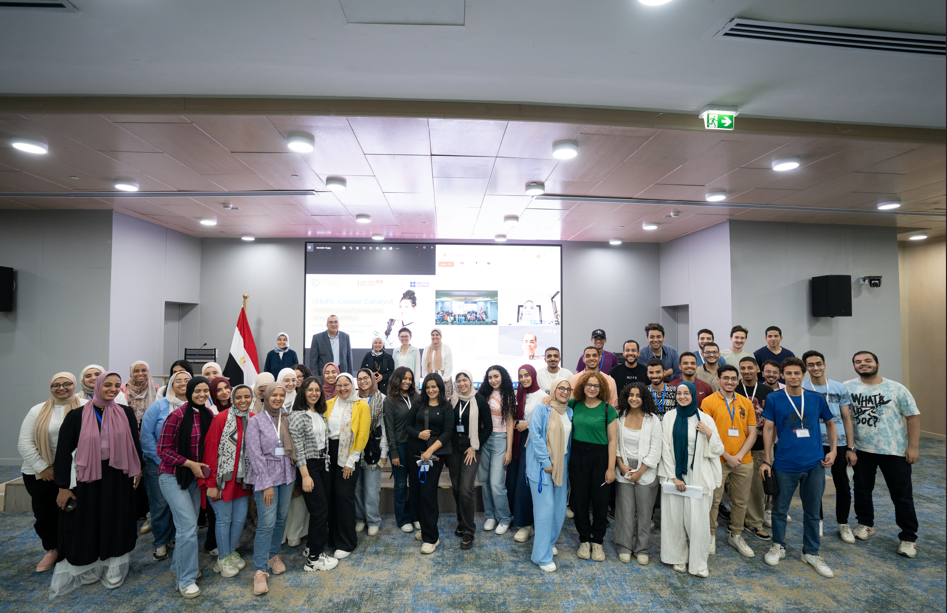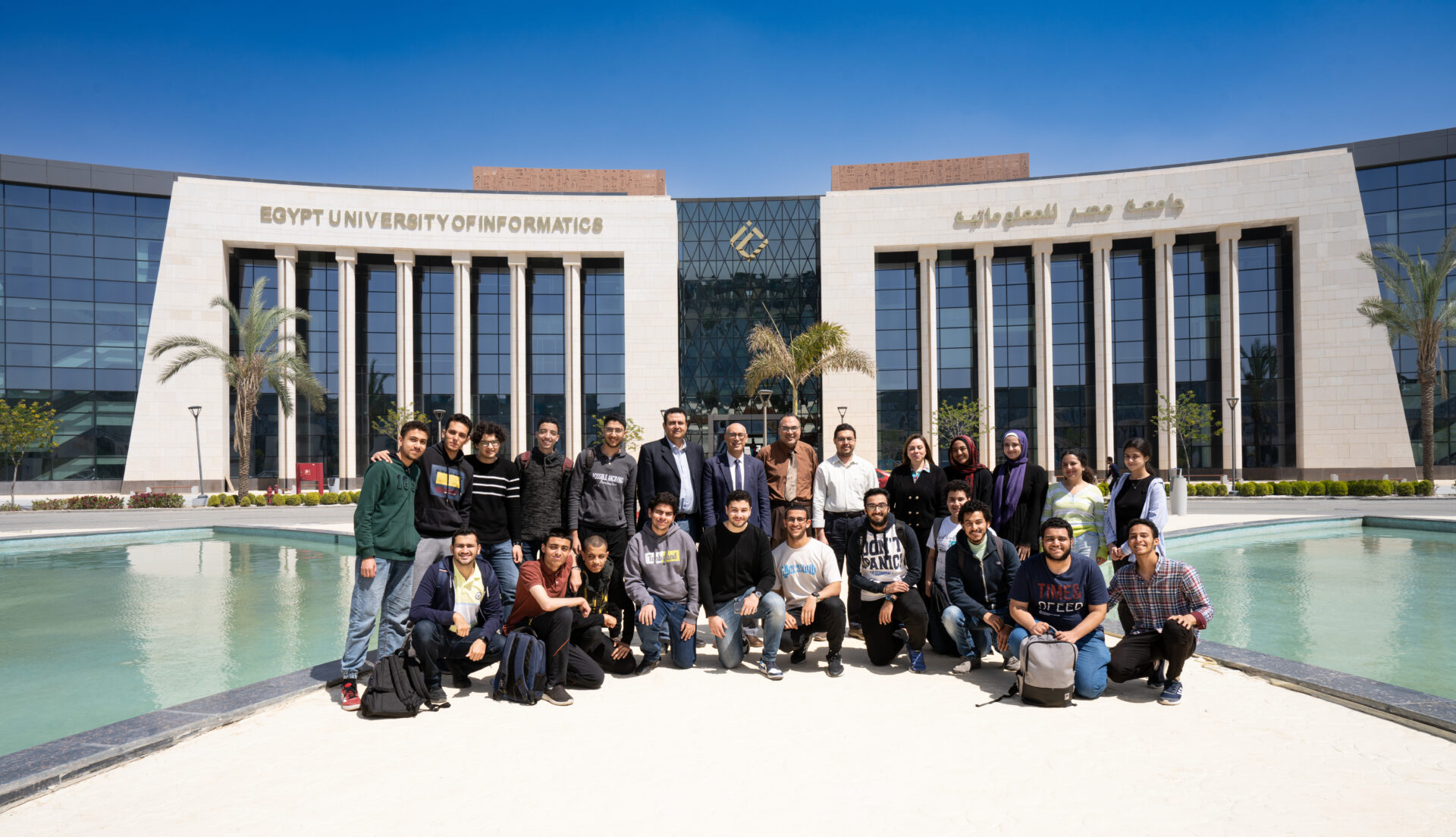
EUI and Lancaster University concludes the iSkills program on campus

Egypt University of Informatics has concluded the iSkills professional Career Catalyst program, organized and hosted at its premises in the Knowledge City in the New Administrative Capital, in collaboration with Lancaster University and funded by the British Council, with the participation of experts from abroad. The program took place from August 18 to October 9. It aimed to enhance the university's role in nurturing promising talents among future leaders and supporting the telecommunications, information technology, and data sectors.
The program targeted 45 students, empowering recent graduates with the skills, experience, and knowledge necessary for success in the job market, particularly business school graduates who completed their studies in 2023 or later and achieved a grade of "Good" or higher, as well as final-year students.
Prof. Reem Bahgat, President of Egypt University of Informatics, affirmed that the collaboration with Lancaster University and the British Council reinforces the importance of partnerships between advanced academic institutions worldwide, aiming to enhance joint efforts in preparing skilled individuals equipped with the latest competencies. This ensures their active participation in the unprecedented development of the global telecommunications and information technology sector.
Prof. Bahgat explained that training programs, including iSkills, effectively help bridge the gap between academia and the job market, equipping graduates with the necessary capabilities to adapt to all changes related to future jobs. This is a top priority for the University of Egypt for Information Science in its academic programs to ensure students remain innovative in the tech world.
Prof. Ahmed Hamad, Vice President for Academic Affairs, stated, "The iSkills program was conducted flexibly thanks to the university's advanced capabilities and modern research centers equipped with the highest international standards. Additionally, our faculty members possess distinguished expertise in both academic programs and training, as well as in leading research and innovations, all contributing to providing an effective and focused academic experience for the trainees."
Prof. Hamad emphasized that training and preparing youth for the job market plays a crucial role in building a knowledge-based economy, which is a goal of the New Republic through its strategic priorities aimed at enhancing technological capabilities and establishing Egypt's position on the global stage as a regional center for digital excellence.
Prof. Samaa Taher, Program Director of the iSkills program at EUI, noted, "The program revolves around three main pillars: (data analysis, personal skills, and sustainability)." She affirmed that this collaboration is a testament to their commitment to providing the highest quality in academic and training programs for participants in the iSkills program, aligning with the university's policy to expand the provision of outstanding educational and training services, equipping the next generation of digital leaders with the knowledge and skills needed to tackle the new challenges arising from sector developments.
It is worth noting that the iSkills program was designed to bridge the gap between academic education and the job market. It began with basic training on job market readiness skills, then progressed to advanced levels covering technological fields and data analysis, ranging from fundamental data handling skills to advanced data visualization techniques, as well as personal skills like interpersonal communication, leadership, teamwork, and sustainability practices.
The program concluded with participants receiving certificates of completion after working on graduation projects that applied the skills they acquired during the training period. The University of Egypt for Information Science hired two trainees, and others were employed in various organizations based on what they learned in the program. Accommodation was provided for participants from outside Cairo, along with transportation throughout the eight weeks.

